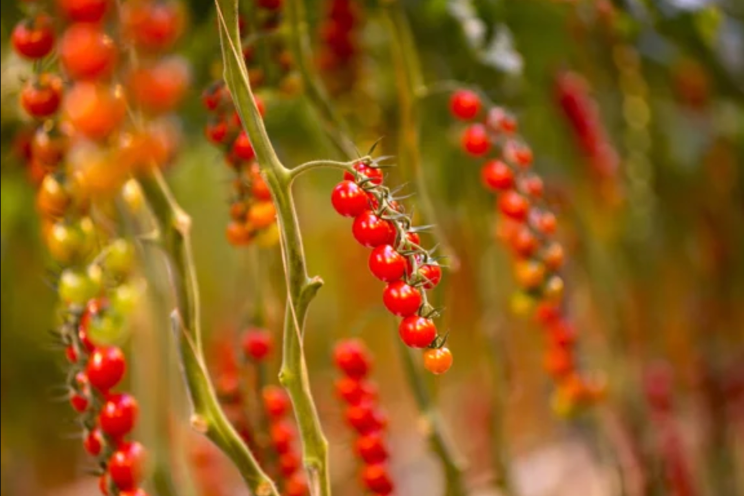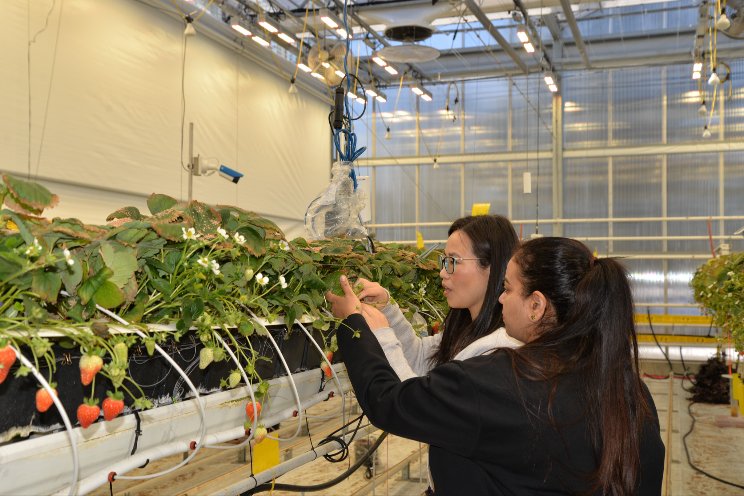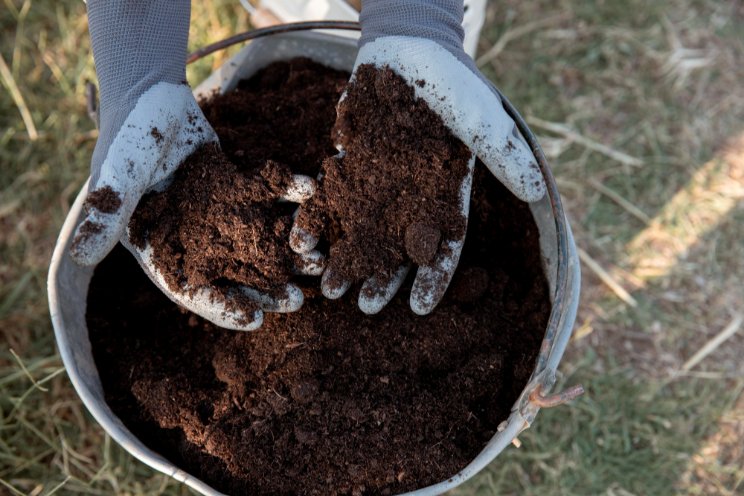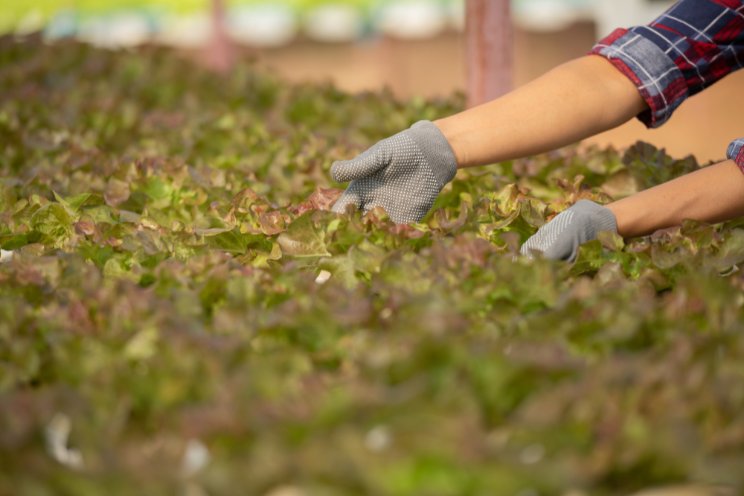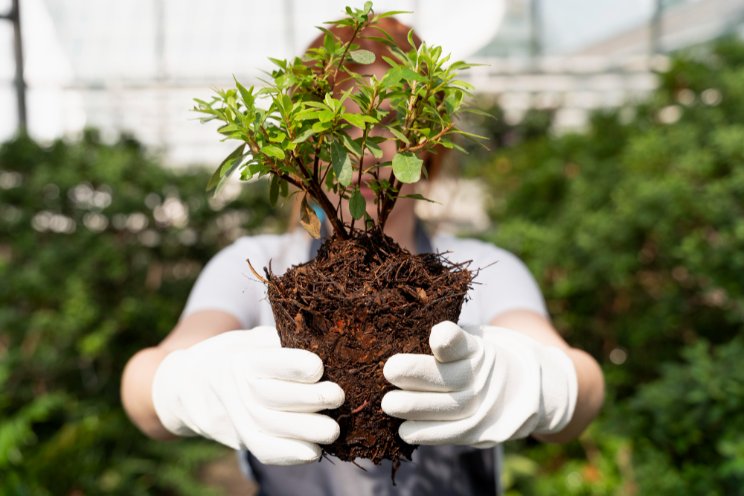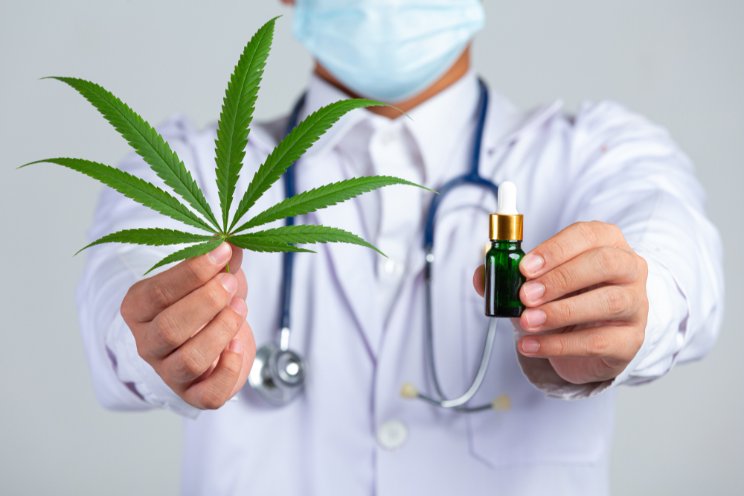Netherlands to Canada
Added on 24 March 2020

The nursery is currently co-owned by Jos Moerman and his cousin Bram Moerman, both of whom were born in the Netherlands. They are the third generation of a notorious Dutch 'greenhouse dynasty'.
The cousins Jos and Bram Moerman: 'We keep the nursery in the family'
 Jos Moerman's father (Cor) and uncle (Brecht) - two members of the second generation- cutting butter lettuce in Bleiswijk in the 1950s.
Jos Moerman's father (Cor) and uncle (Brecht) - two members of the second generation- cutting butter lettuce in Bleiswijk in the 1950s.
Emigrated in 1996
So how did they end up in Canada? "We've always enjoyed the outdoor life and our family holidays revolved around activities such as skiing and hiking in the mountains. One year when we were hiking in the French Alps, we decided to move to a country where we could do it all year round - and ended up in Canada!" recalls Jos Moerman. "Plus competition is very fierce in the European greenhouse sector and margins are small, so you have to work really hard to make a decent living. Our move was more about finding a better work-life balance than making more money."
The Moermans travelled to BC in January 1996 to check out its suitability and purchased a plot of land in Abbotsford the very same week. "When we got back to the Netherlands, we were so enthusiastic that my cousin Bram and his wife decided to come with us and set up a business together. So on 21 November 1996, our two families - with six children between us - emigrated."

Bram (left) and Jos Moerman (right), the third-generation growers, expanded the company from 2 to 29 ha greenhouse peppers.
Close family ties
Although Jos and Bram had never actually worked together before, they had close ties, having grown up in the same village (Bleiswijk, north of Rotterdam) and having both worked in the greenhouse business with their respective fathers. "Bram and I have a very good relationship, and we've actually found that it's easier if you take another family with you when you emigrate. There are lots of things to cope with in a new country of course, both in terms of learning about crop production and the local culture, so it's nice to be able to share the workload. Plus it was great for the kids, of course."

An aerial shot of the Delta site showing Phase 1 at the top and Phase 2 at the bottom. Phase 3 (not shown) was added to the right of Phase 2 in 2018 and Phase 4 will be built to the right of Phase 1 in 2020.
Continual expansion
Work quickly got underway to construct a 2 ha greenhouse in Abbotsford. The first crops were planted in January 1997, and the company has been expanding its production ever since. "In 2006, we set up an additional operation in South Surrey which is just a couple of kilometres from the water. It has mild winters, mild summers and below-average rainfall which is an excellent climate for peppers. Although the two regions are just 40 km apart as the crow flies, Abbotsford gets twice as much rain which means much less light too. So we focused on expanding in South Surrey, and also in the nearby Delta area, and ultimately sold our Abbotsford greenhouse in 2012. We currently have 11 ha in South Surrey and 18 ha in Delta, where we're planning to add another greenhouse later this year."
Long, pointed and blocky peppers
In 2020, the company will grow 6 ha of mini pointed peppers in three colours, 2 ha of long pointed peppers (Sweet Palermo, Guernsey and Chocalony) and 21 ha of blocky peppers: 50% red (Gina, Raizor and Maldonado), 25% yellow (Rookie) and 25% orange (Orbit, 261 and 1177).
The Venlo-type glass greenhouses are equipped with Priva computers to control the technical systems, Peter Dekker screens, Greefa grading equipment, Meteor growing gutters and v/d Burg bin tippers for emptying the peppers from the macro bins onto our grading line.
There is also a focus on sustainability, as Jos explains: "We have a clean product which is grown indoors fully hydroponically on mostly coco fibre and partly rockwool from Grodan, and we collect and re-use rainwater and drain water. We also use energy curtains to save energy, and even have a double screen in our newest greenhouse. Besides that, in South Surrey we have a wood boiler imported from Austria to burn wood rather than natural gas in the winter."
Value-added
Planting is done in mid-December and then the peppers are harvested continuously from March until the third week of November. The company has around 150 employees including around 50 seasonal workers from Mexico who can spend up to eight months in Canada each year as part of the Seasonal Agriculture Worker Programme (SAWP).
The products are sold and marketed through Windset Farms, with 60% exported - mainly to the western USA plus a little into Japan and Hong Kong. 50% of the peppers are repacked as value-added products for major grocery chains such as Costco and Safe Way, and the rest is sold in bulk.
Peak weeks up to 400,000 kg
Sunnyside Produce regularly trials different varieties. "We're not always just looking for a better yield," says Jos. "The size of fruit is important too in view of our value-added business. Retail customers want 'traffic light bags' with three different colours but not three different sizes. Some varieties produce smaller fruits as the season progresses, so we're always looking for varieties with that stay big all season long. Good quality is important too - in terms of shape, colour and susceptibility to damage. In peak weeks our volumes can reach up to 400,000 kg of peppers so we need to keep our grading and packing lines moving at top speed as much as possible."
The next generation
Jos and Bram are now getting ready to take more of a backseat in the business. Luckily for them, Jos's eldest son Corne and Bram's son Paul are keen to take over the reins. "Agriculture generally is a healthy and thriving business here in BC so it's not difficult to find young people who are willing to move into the greenhouse sector," observes Jos. "Today's production companies are bigger and more high-tech, meaning it's often more important to be a good manager than a grower. If you're not naturally green fingered, you can afford to hire someone who is!"
Shareholders
The sons are in their early thirties now and have been in the business for over ten years. They both went to agricultural college and were keen to join the family business, but Jos and Bram made sure they gained some practical experience first.
"In 2007 when Sunnyside Produce started doing the grading and packing in-house, they set up those activities as their own separate company and charged us a flat fee per box. They gained valuable business experience about the importance of costs and profit."
Corne and Paul became shareholders three years ago, and Jos and Bram will stay on as shareholders for next three years. "We hope to still be involved, of course, albeit in a more advisory role. Our sons are already taking on more responsibilities; they are overseeing the upcoming expansion, for example, so it's a good transition period. It's a big challenge to take over the business, but they are both excited to be doing so. After all, there's a great future for the greenhouse industry and growing demand for our product," he concludes.
A greenhouse dynasty
The Moerman dynasty started around 1920 when Bram Moerman senior started growing cucumbers in the Netherlands. His four sons subsequently became growers too - Brecht and Cor (Jos's father) set up a company together, and Henk and Pau (Bram's father) had their own greenhouse businesses. Jos, Bram and several other brothers/cousins then followed in their footsteps as third-generation vegetable growers in the west of the Netherlands and later Canada. And now the businesses are gradually transitioning to the fourth generation of the family on two different continents.
Text: Lynn Radford, images: Sunnyside Produce
Source: Ingreenhouses
Source: In Greenhouses
More news
